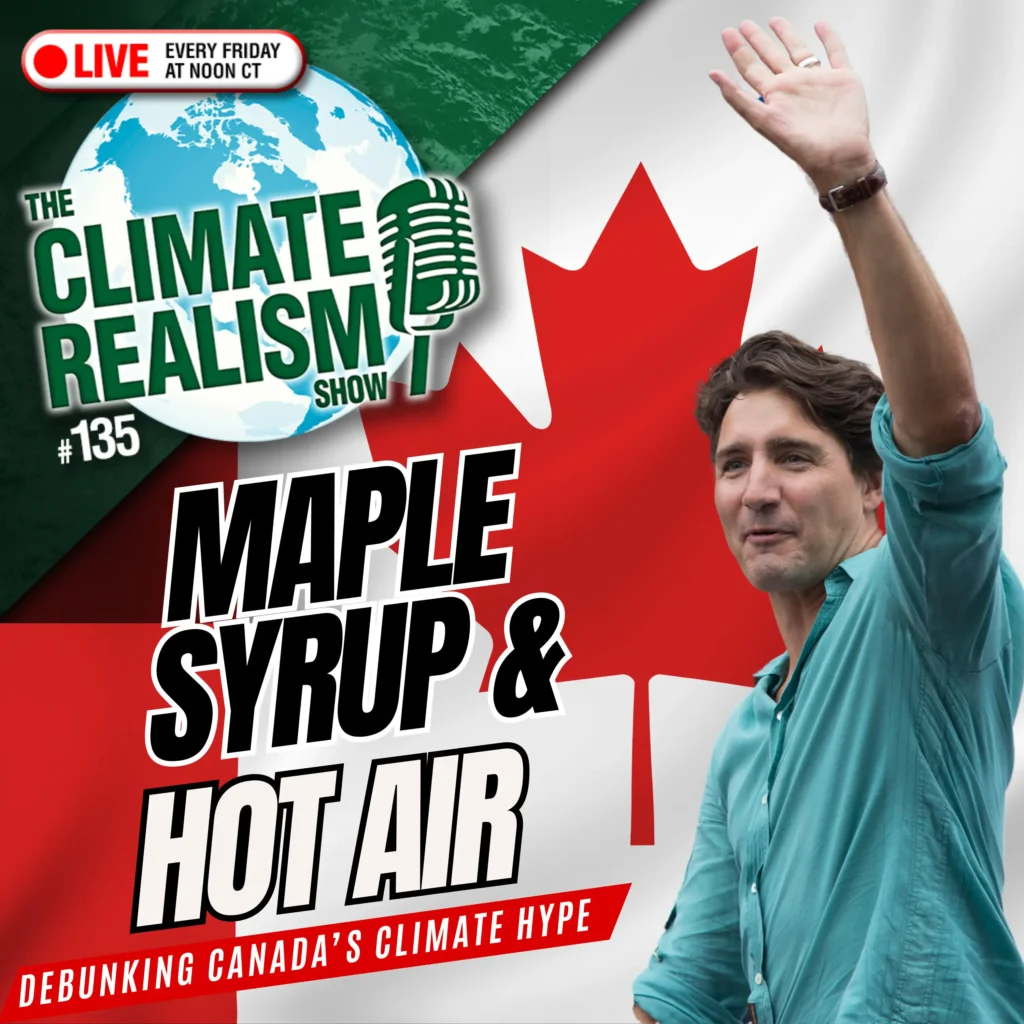Among the truths reinforced for me during the ongoing climate war is this: Transparency is a paramount virtue in science and politics, even more so when those two fields of endeavor overlap as they do in discussions of climate change.
The scientific process produces discoveries that expand human knowledge and further human welfare only when scientists act in a transparent manner: when different teams of researchers collaborate, sharing data, assumptions, and methodologies, exchanging theories and ideas, and reviewing and testing each other’s work. Transparency is critical to confirming or disconfirming research results, and thus is the best way to ensure what scientists claim to have proven is true and to prevent other scientists from going down unproductive research paths.
The United States was founded as a constitutional republic with an elected legislature and executive, not a dictatorship. Transparency in the political sphere is even more important to most Americans’ lives than in science. The laws, regulations, and executive orders enacted by Congress or imposed by the president expand or limit peoples’ freedom and affect their social and economic well-being on a daily basis. In America, these laws and rules are supposed to flow ultimately from the people. But the people can effectively participate in the political process only if they are aware of what the government is doing. Only transparency allows the public to confirm that the laws and rules they must live under reflect their will, and only transparency gives them the ability to oversee and restrain government when necessary.
The lack of transparency in the scientific and political spheres of the climate war – recognizing the two are almost inextricably intertwined these days – debases both.
A number of climate scientists, including those leading the alarmists’ side of the climate war, have been caught behaving very badly. Several were caught up in the Climategate scandal, found to be ignoring or scrubbing data that contradicted their pet theories or their research while simultaneously trying to suppress the publication of skeptical research in prominent journals.
Then there is the Intergovernmental Panel on Climate Change (IPCC), which tried to pass off as peer-reviewed and true work by radical environmental groups falsely claiming Himalayan glaciers were rapidly disappearing and crops were failing. In addition, IPCC carefully removes from summaries given to the press and politicians any doubt expressed in its massive assessment reports concerning the human source and disastrous consequences of climate change, thus ensuring only the alarmist perspective is heard.
Most recently, a group of scientists dubbed the RICO 20 called for prosecuting on fraud and racketeering charges any companies, organizations, or scientists who publicly doubt or debate humans are causing catastrophic climate change.
In each of these instances, those involved tried to hide, destroy, or prevent the sharing of research (assumptions, data, and methods) underpinning their claims humans are causing climate change. And as evidence of their malfeasance began to leak out, the scientists fought to prevent the release of data and e-mail exchanges detailing their work and how they conspired to prevent the free discussion of research contradicting their own views or policies they wish to see enacted.
Government officials have been as bad as or worse than alarmist scientists in attempting to suppress skeptical climate research and speech, and hiding their efforts from public view. In the past two years, Congress has detailed multiple instances where government agencies broke the law in order to push a radical environmental agenda while avoiding public scrutiny.
On March 29, 2016, when 17 attorneys general (AGs) – 15 Democratic state AGs, one Democrat from the District of Columbia, and one Independent from the Virgin Islands – announced a coordinated effort to initiate legal action against ExxonMobil and other groups opposing President Barack Obama’s Clean Power Plan, the AGs tried to hide evidence they were collaborating with radical groups opposed to fossil fuel use. Various state Freedom of Information Act requests exposed the state AGs’ attempted extortion for what it was. Though the AGs’ scheme quickly unraveled, it highlighted once again the lengths to which climate alarmists will go to keep the true nature of their political machinations secret.
Secrecy undermines our democratic form of government and the scientific endeavor, both critical to peoples’ freedoms and well-being. It’s time to end climate war secrecy. If this is done, I’ll wager the war ends quickly – with climate skeptics, free-market advocates, and the general public being the winners.
— H. Sterling Burnett
SOURCES: Science and Public Policy Institute; Senate Committee on Environment and Public Works 2015; Senate Committee on Environment and Public Works 2014; and Energy & Environment Legal Institute
IN THIS ISSUE …
California limits cow pies, farts … Climate alarmists sued for fraud … New studies find little evidence humans are affecting sea levels … No EU agreement on emission cuts
CALIFORNIA LIMITS COW PIES, FARTS
Low-income Californians already face some of the nation’s highest electricity, gasoline, and housing prices and taxes, yet in the final hours of the state’s 2016 legislative session, California’s Democrat-controlled legislature piled-on the poor by approving $900 million in spending on environmental programs. The bill included provisions forcing dairies and livestock producers to reduce methane emissions from manure 40 percent below 2013 levels by 2030. It also would force farmers to limit cow flatulence to the extent technology exists to reduce it. The bill provides $50 million to implement and enforce the agricultural methane limits and another $40 million to limit methane emissions from landfills. The prices of beef, cheese, and milk are likely to rise. State Sen. Jeff Stone (R-Temecula) opposed the spending plan, saying the spending “goes to many Democrat pet projects … pursu[ing] long-term greenhouse gas reduction goals that will continue to harm families and jobs.”
SOURCES: Cornwall Alliance and Yahoo News
CLIMATE ALARMISTS SUED FOR FRAUD
Mathematician and software engineer Leonid Goldstein filed a lawsuit in the U.S. District Court for the Northern District of Texas on September 12, 2016, against more than 40 environmental groups, green investment funds, and foundations who Goldstein’s filing states have broken multiple laws by bribing, retaliating against, and tampering with witnesses, bribing public officials, and embezzling trillions of dollars from pensions, welfare plans, and Social Security. According to Goldstein, the groups are “engaged in a long-term criminal scheme, involving a false claim that anthropogenic release (or emissions) of carbon dioxide caused a dangerous ‘global warming’ or a dangerous ‘climate change,’ and persecution of the dissidents or demanding government actions, based on this false claim, including money transfer.”
Among the groups being sued are the David and Lucile Packard Foundation, Energy Foundation, Environmental Defense Fund, Environmental Grantmakers Association, Friends of the Earth, Generation Investment Management, Natural Resources Defense Council, Pew Charitable Trusts, Sierra Club, Union of Concerned Scientists, U.S. Climate Action Network, and World Wildlife Fund.
SOURCES: Watts Up With That and Leonid Goldstein v. Climate Action Network, et al.
NEW STUDIES FIND LITTLE EVIDENCE HUMANS ARE AFFECTING SEA LEVELS
Several recent scientific studies found little evidence humans are affecting sea levels, while one study finds the planet is adding land mass faster than it was being submerged.
A dissertation by Hindumathi Palanisamy of the Laboratory for Studies in Geophysics and Spatial Oceanography in Toulouse, France found sea levels are determined by interactions of numerous components of the climate system (oceans, ice sheets, glaciers, atmosphere, and inland water reservoirs) on a wide range of spatial and time scales and that by studying “sea level spatial trend patterns in the tropical Pacific and attempting to eliminate [the] signal corresponding to the main internal climate mode, we show that the remaining residual sea level trend pattern does not correspond to externally forced anthropogenic sea level signal.”
A study by a group of scientists led by Mohammad Hadi Bordbar from the Helmholtz Centre for Ocean Research in Kiel, Germany concluded recent sea level trends in the tropical Pacific “are still within the range of long-term internal decadal variability [and] [f]urther, such variability strengthens in response to enhanced greenhouse gas concentrations, which may further hinder detection of anthropogenic climate signals in that region.”
Another study, by Sönke Dangendorf and colleagues at the Research Institute for Water and Environment at the University of Siegen, Germany, found “there are … considerable decadal to centennial signals linked to intrinsic natural variability in the climate system. … [A] non-negligible fraction of the observed 20th century sea level rise still represents a response to pre-industrial natural climate variations such as the Little Ice Age.”
While sea levels are rising, a study published August 25 in Nature Climate Change determined Earth’s coasts actually gained land over the past 30 years. The study reports Earth’s surface gained 22,393 square miles of land over the past 30 years, including 13,000 square miles along coastal areas. Study co-author Fedor Baart told the BBC, “We expected that the coast would start to retreat due to sea level rise, but the most surprising thing is that the coasts are growing all over the world.”
SOURCE: CNS News; Hindumathi Palanisamy; Mohammad Hadi Bordbar, et al.; Sönke Dangendorf, et al.; Nature Climate Change
NO EU AGREEMENT ON EMISSION CUTS
The European Union (EU) is proving to be an unexpected stumbling block to enacting the Paris climate change agreement before the end of the year. Since 1990, the EU has been a driving force behind the development of multiple climate treaties and agreements. Yet a major meeting of 27 EU leaders in Bratislava, Slovakia ended on September 16 with no mention of implementing the Paris climate agreement. The United Kingdom’s exit from the EU makes meeting the block’s climate goals more difficult, and Poland has made it clear it will support ratification of the agreement only if the EU meets its demand to invest in new coal-fired power plants in the country.
SOURCES: Council of the European Union and Financial Times





